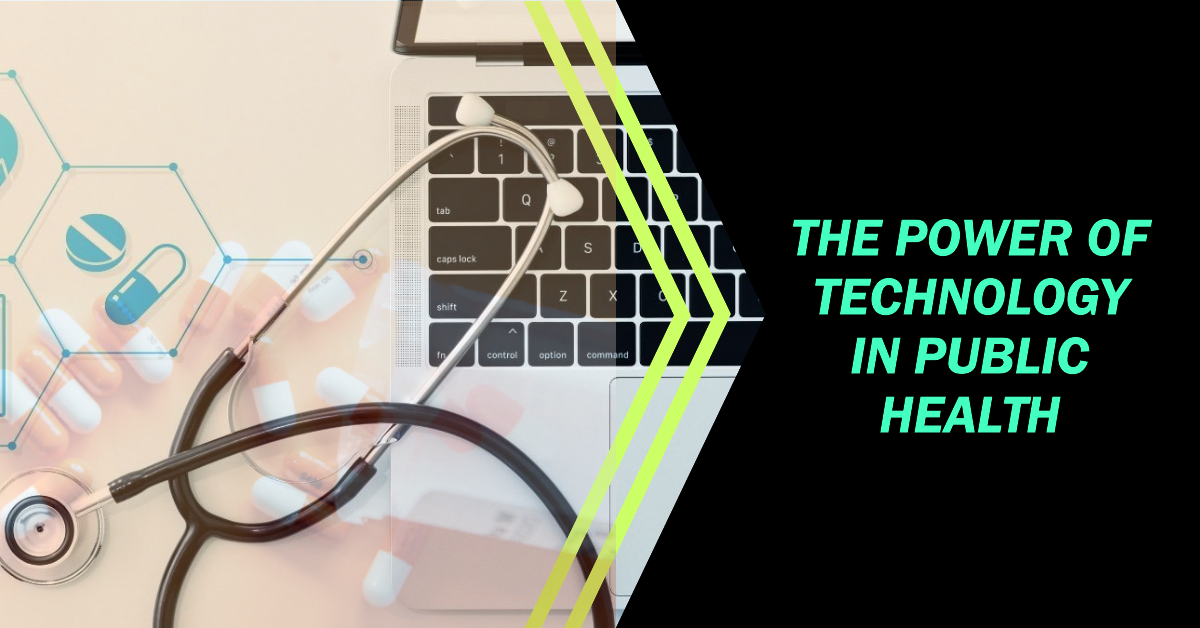How Technology Giving Public Health Programs a Powerful Boost
Discover how technology is reshaping the landscape of public health programs, empowering individuals through healthtech, data-driven decisions, and predictive analytics. This blog explores the transformative impact of digital solutions, connecting communities for better health, while addressing challenges like data security and equitable access. Join us on a journey into the future of tech-boosted public health.

In a world where technology is advancing at an unprecedented pace, its impact is felt across all facets of our lives, and the realm of public health is no exception. With the fusion of cutting-edge technology and innovative healthcare solutions, public health programs are receiving a powerful boost, propelling us into a new era of wellness and well-being.
A Digital Transformation for Public Health
Gone are the days when public health initiatives relied solely on traditional methods. The integration of technology has ushered in a digital transformation that's revolutionizing the way we approach health on a societal level. From mobile applications that track vital health metrics to sophisticated data analytics tools that predict disease outbreaks, technology is giving public health programs the tools they need to be proactive and efficient.
Empowering Individuals Through Healthtech
At the heart of this transformation lies the empowerment of individuals. Healthtech innovations are putting the power of healthcare into the hands of the masses. Take smartphone apps, for instance. These digital companions provide personalized health insights, allowing individuals to monitor their fitness levels, track their calorie intake, and even manage chronic conditions—all with a few taps on their screens.
Beyond apps, wearable devices have also emerged as a game-changer. From smartwatches that measure heart rates to fitness trackers that count steps, these wearables provide real-time data that can be shared with healthcare providers. This not only encourages a more active lifestyle but also enables early detection of health issues, leading to timely interventions.
Data-Driven Decisions and Predictive Analytics
In the realm of public health, data is king. Technology has given us the means to collect, analyze, and leverage massive amounts of health-related data. This data-driven approach enables public health agencies to make informed decisions and allocate resources more effectively.
One of the most remarkable applications of technology in public health is predictive analytics. By crunching historical health data and identifying patterns, predictive models can forecast disease outbreaks, allowing authorities to take preventive measures. This capability proved invaluable during the COVID-19 pandemic, where data-driven insights guided public health responses and saved lives.
Connecting Communities for Better Health
Technology has a unique way of bridging gaps and bringing people together, and this connectivity extends to the realm of public health. Telemedicine, for instance, has emerged as a lifeline, especially for those in remote areas or with limited access to healthcare facilities. Virtual consultations allow doctors to diagnose and treat patients, making quality healthcare accessible to all.
Additionally, technology-powered platforms have facilitated the creation of online support communities. People dealing with similar health challenges can now connect, share experiences, and offer encouragement, regardless of geographical boundaries. These communities provide a sense of belonging and reduce the isolation that can come with health issues.
Challenges and Considerations
While the integration of technology into public health programs is undeniably transformative, it's not without its challenges. Privacy and security concerns are paramount, as health data is sensitive and must be protected. Striking a balance between convenience and data security is a continuous effort that requires close collaboration between tech experts and healthcare professionals.
Furthermore, the digital divide remains a concern. Not everyone has access to the latest smartphones, wearables, or high-speed internet. Ensuring equitable access to technology-driven health solutions is a challenge that demands creative solutions and policy interventions.
The Future of Tech-Boosted Public Health
As we peer into the future, the trajectory of technology and public health seems intertwined in ways we couldn't have imagined just a decade ago. The convergence of artificial intelligence, big data, and biotechnology promises even more exciting possibilities. We might see AI-powered diagnostic tools that analyze medical images with unmatched accuracy, or personalized treatment plans created based on an individual's genetic makeup.
In conclusion, technology's impact on public health programs is nothing short of remarkable. It's not just about optimizing processes; it's about empowering individuals, connecting communities, and predicting and preventing health issues before they escalate. The journey has just begun, and as technology continues to evolve, so too will our capacity to enhance public health and create a healthier world for all.
ALSO READ
Revolutionizing Assam's Waterways: A New Wave of Connectivity and Safety
Bharti Airtel Boosts Connectivity with New Installations at Ladakh's Frontiers
A New Era of Connectivity: ICP Darranga Unveiled
Inauguration of First India-Bhutan Border ICP Boosts Trade Connectivity
Sky Connectivity: New Delhi to Pithoragarh Flight Launched










